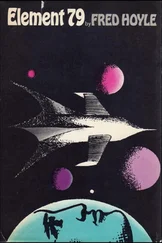“For instance,” he told Reinhart and Dawnay when they sat down together to work on it, “it wants to know about hearing. There’s a lot here about audio frequencies, and it’s obviously asking how we make sounds and how we hear them.”
“How could it know about speech?” Dawnay inquired.
“Because its creature can see us using our mouths to communicate and our ears to listen. All these questions arise from your little monster’s observation. He can probably feel speech vibrations, too, and now that he’s wired to the machine he can transmit his observations to it.”
“You assume.”
“How else do you account for this?”
“I don’t see how we can analyse the whole human structure,” Reinhart said.
“We don’t have to. He keeps making intelligent guesses, and all we have to do is feed back the ones that are right. It’s the old game. I can’t think, though, why it hasn’t found some quicker method by now. I’m sure it’s capable of it. Perhaps the creature hasn’t come up to expectations.”
“Do you want to try it?” Reinhart asked Dawnay.
“I’ll try anything,” she said.
So the next stage of the project went forward, while Christine stayed with the computer, taking readings and inputting the results. She seemed all the time in a state of nervous tension, but said nothing.
“Do you want to move over to something else?” Fleming asked her when they were alone together one evening in the computer building.
“No. It fascinates me.”
Fleming looked at her pensive and rather beautiful face. He no longer flirted with her as he used to before he was interested, when she was just a girl in the lab. Pushing his hands into his pockets, he turned from her and left the building. When he had gone she walked across the control room to the laboratory bay. It took her an effort to go through into the room where the tank was, and she stood for a moment in the doorway, her face strained, bracing herself. There was no sound except for the steady mains hum of the computer, but when she came within range of the port-hole in the side of the tank the creature began to move about, thumping against the tank walls and slopping fluid out of the open top.
“Steady,” she said aloud. “Steady on.”
She bent down mechanically and looked in through the porthole: the eye was there looking steadily back at her, but the creature was becoming more and more agitated, threshing about with the fringes of its body like a jellyfish. Christine passed a hand across her forehead; she was slightly dizzy from bending down, but the eye held her as if mesmerically. She stayed there for a long minute, and then for another, growing incapable of thought. Slowly, as if of its own volition, her right hand moved up the side of the tank and her fingers sought the wire leading in to the encephalograph cable. They touched the wire and tingled as the slight current ran through them.
The moment she touched the wire, the creature grew quiet. It still looked steadfastly at her but no longer moved. The whole building was utterly quiet except for the hum of the computer. She straightened slowly, as if in a trance, still holding the wire. Her fingers ran along it until they touched the sheath of the cable and then closed on that, sliding it through the hollow of her hand. The cable was only loosely rigged; it looped across from the tank to the wall of the laboratory and was slung along the wall from pieces of tape tied to nails at intervals of a few yards. As her hand felt its way along the cable, she walked stiffly across to the wall and along beside it to the doorway to the computer room. Her eyes were open, but fixed and unseeing. The cable disappeared into a hole drilled in the wooden facing of the doorpost and she seemed at a loss when she could follow it no further. Then she raised her other hand and gripped the cable again on the other side of the doorway.
Her right hand dropped and she went through into the other room, holding the cable with her left. She worked her way slowly along the wall to the end of the rack of control equipment, breathing in a deep, laboured way as if asleep and troubled by a dream. At the centre of the racks of equipment the cable ran into the transformer below the control panel. The panel lights flashed steadily with a sort of hypnotic rhythm and her eyes became fixed on them as they had been on the eye of the creature. She stood in front of the panel for a few moments as though she were going to move no further; then, slowly, her left hand let go of the cable. Her right hand lifted again and with the fingers of both she grasped the high tension wires that ran from the transformer up to the two terminals beside her head. These wires were insulated to a point just below the terminals where their cores were bared and clamped on to the jutting-out plates. Her hands moved up them slowly, inch by inch.
Her face was blank and drained and she began to sway as she had done on the day when Fleming first made her stand between the terminal plates. She held on tightly to the wires, her fingers inching slowly up them. Then she touched the bare cores.
It all happened very quickly. Her body twisted as the full voltage of the current ran through it. She began to scream, her legs buckled, her head fell back and she hung from her outstretched arms as if crucified. The lamps on the display panel jammed full on, glaring into her distorted face, and a loud and insistent thumping started from the other room.
It lasted about ten seconds. Then her scream was cut off, there was a loud explosion from the fuse-panel above her, the lights went dead, her fingers uncurled from the naked wire and she fell heavily into a crumpled heap on the floor. For a moment there was silence. The creature stopped thumping and the humming of the computer stopped as if cut with a knife. The alarm bell rang.
The first person on the scene was Judy, who was passing the building when the alarm on the wall of the porch clanged into life. Pushing open the door, she ran wildly down the corridor and into the control room. At first she could see nothing. The strip lights in the ceiling were still on, but the control desk hid the floor in front of the control panel. Then she saw Christine’s body and, running forward, knelt down beside it.
“Christine!”
She turned the body over on to its back. Christine’s face stared sightlessly up at her and the hands fell limply back on to the floor: they were black and burnt through to the bone. Judy felt for the girl’s heart, but it was still.
“Oh God!” she thought. “Why do I always have to be in at the death?”
Reinhart was back in London when he heard the news. When he reported it to Osborne, he got a different response from what he expected; Osborne was certainly worried by it, but he seemed preoccupied with other things and took it as one blow among many. Reinhart was distressed and also puzzled: not only Osborne but everyone else he met, as he moved in and out of Whitehall offices, appeared to have something secret and heavy on their minds. He thought of going to Bouldershaw Fell, which he had not visited for a long time, to try to get away from the feeling of oppression that surrounded him, but he found immediately that the radio-telescope had been put under military control and was firmly sealed off by Ministry of Defence security. This had happened without warning during the past week while he had been at Thorness. He was furious at not being consulted and went to see Osborne, but Osborne was too busy to make appointments.
Christine’s post mortem and autopsy reports followed in a few days. The Professor was at least spared the ordeal of explaining to her relatives, for both her parents were dead and she had no other relations in the country. Fleming sent him a short, grim letter saying that no major damage had been done to the computer and that he had a theory about Christine’s death. Then there was a longer letter telling him the blown circuit had been repaired and that the computer was working full out, transferring a fantastic amount of information to its memory storage, though what the information was Fleming did not say. Dawnay telephoned him a couple of days later to say the computer had started printing-out. A vast mass of figures was pouring out from it, and as far as she and Fleming could tell this was not in the form of questions but of information.
Читать дальше












